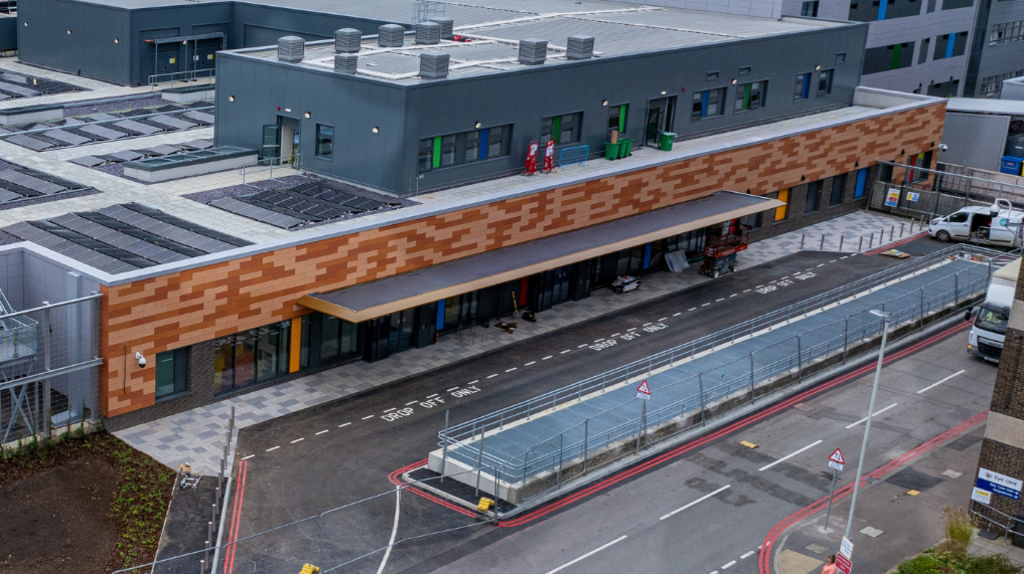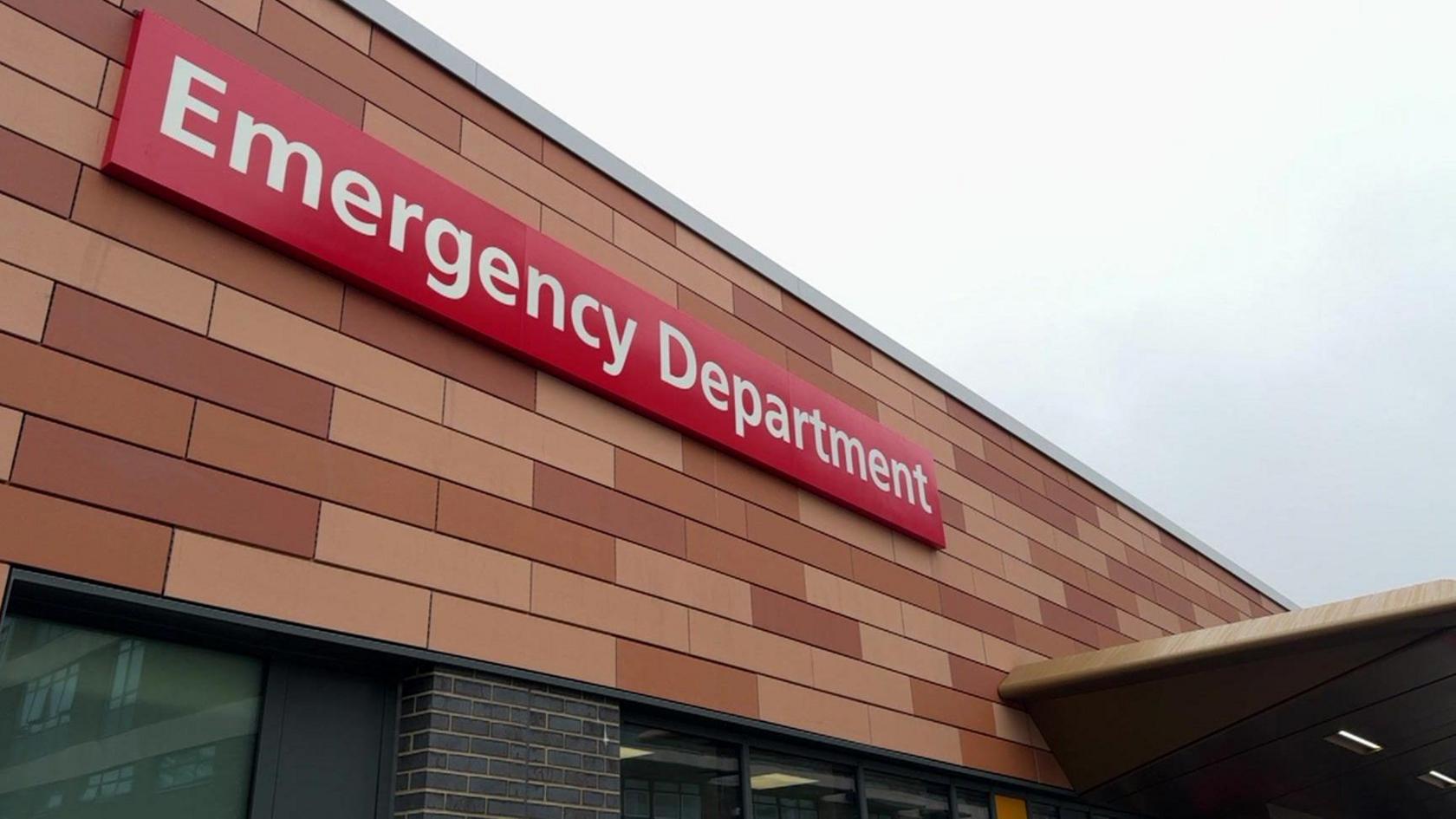Hospital told to improve emergency care

The Queen Alexandra Hospital, in Portsmouth, has been inspected by the Care Quality Commission
- Published
A hospital's urgent and emergency care services need to make improvements due to overcrowding and safety concerns, a health watchdog has said.
The Care Quality Commission (CQC) carried out an inspection of Queen Alexandra Hospital, in Portsmouth, in May – the first since its new emergency department opened.
The hospital, which is run by Portsmouth Hospitals University NHS Trust, was rated as "good" overall in the CQC's findings, external.
Neil Cox, CQC deputy director of operations in Portsmouth, said that although some improvements had been made since the last inspection, there were still "breaches of regulations".
He also noted that not all staff "had the training needed to support autistic people and people with a learning disability".
Mr Cox added this meant people did not always have "access to specialist resources to help them understand and take part in their care".
He said that these issues meant that some patients "did not receive the same safe and person-centred experience as others" when attending the hospital's emergency department, particularly those with additional needs.
Other concerns with the urgent and emergency services care that were raised in the CQC's report included overcrowding leading to people receiving care in corridors that had "poor facilities and evacuation risks".
'Culture of listening'
The report said staff felt clinicians "did not engage in mitigating the risk posed by overcrowding in emergency department by facilitating flow throughout the hospital and preventing emergency department attendances".
Ambulance crews were also said to offload people with "infection control risks before spaces were available", which posed infection risks to other people at the hospital.
However, it was noted that staff often discussed safeguarding concerns in safety huddles and meetings.
Meanwhile, inspectors found staff were "friendly and helpful" when administering medical care, and also "assessed pain and administered relief when needed".
Penny Emerit, the hospital's chief executive, said: "We know there is more to be done and intend to build on the progress to date.
"Our medical care teams have worked very hard to maintain their Good rating and it is fantastic to see inspectors highlight a culture of listening, learning and trust with continuous improvement being embedded into the service."
She added that the hospital was "committed to working together with our patients, colleagues and health and care partners to continue to improve and address the themes identified in this report".
Get in touch
Do you have a story BBC Hampshire & Isle of Wight should cover?
You can follow BBC Hampshire & Isle of Wight on Facebook, external, X (Twitter), external, or Instagram, external.
- Published5 March

- Published26 November 2024

- Published10 January
